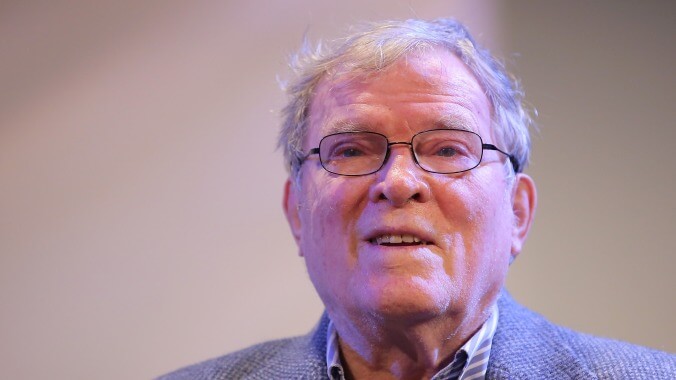R.I.P. D.A. Pennebaker, observational documentary pioneer

D.A. Pennebaker, who won an honorary Academy Award celebrating a life-long career of observing, documenting, and elevating the wide and fascinating world of human behavior on film, has died. Pennebaker, 94, was known for a fly-on-the-wall style of filmmaking capable of teasing out moments of extreme artistic frustration—and creativity—in his subjects, and was especially recognized as a fixture in the world of music documentaries and concert films, capturing, across the breadth of his long career, performances and lived-in moments from the likes of Bob Dylan, David Bowie, Little Richard, Depeche Mode, John Lennon, and many more. Pennebaker’s frequently straightforward aesthetics were matched by a relentless drive for technical innovation, and he and his colleagues pioneered many of the sound and shooting techniques that made modern documentary filming possible in the years to come.
Born in the ’20s in Evanston, Illinois, Pennebaker was a World War II vet who got his initial start as an engineer. (An aptitude that presumably helped when he was working out the logistics of the then-nascent world of handheld filmmaking.) He shifted into making movies in the 1950s, beginning with short films and political docs—the latter of which would be a recurring obsession in his life, most notably in the form of his celebrated Clinton-era behind-the-scenes campaign doc The War Room. (“I could see right away that you couldn’t actually occupy space with a person who intended to become president in a very interesting way,” he told us in an interview about the 1993 film. “They were constrained to act; as soon as the camera appeared, they had to pretend to be something else. That was never very entertaining. But with somebody like [James] Carville or [George] Stephanopoulos, they didn’t give a shit, you know? They didn’t see us as the press because we weren’t the 6 o’clock News.”)
After these early experiments (and a stint with Time-Life Broadcasting) Pennebaker began his true rise to prominence in 1967, when Albert Grossman hired him to follow Bob Dylan around Europe, footage that would eventually become the legendary Don’t Look Back. (There’s a mild irony to the fact that Pennebaker, so known for his observational, un-mannered style, would also help lay the groundwork for the modern music video with the film’s iconic opening scene.) Grossman had encountered Pennebaker’s work through a short film he’d made the year before about jazz singing Dave Lambert, edited for and shown at his memorial after his abrupt death in a car accident in 1966. In that same interview, Pennebaker (who’d been out of work, constantly making movies he had no place to show for the proceeding year) described the impetus for the Lambert film like this: “So I said in my head that maybe my reason for existing was to make films of people that nobody else was going to make films of, because I like the music or I like them, or whatever.”
 Keep scrolling for more great stories.
Keep scrolling for more great stories.
